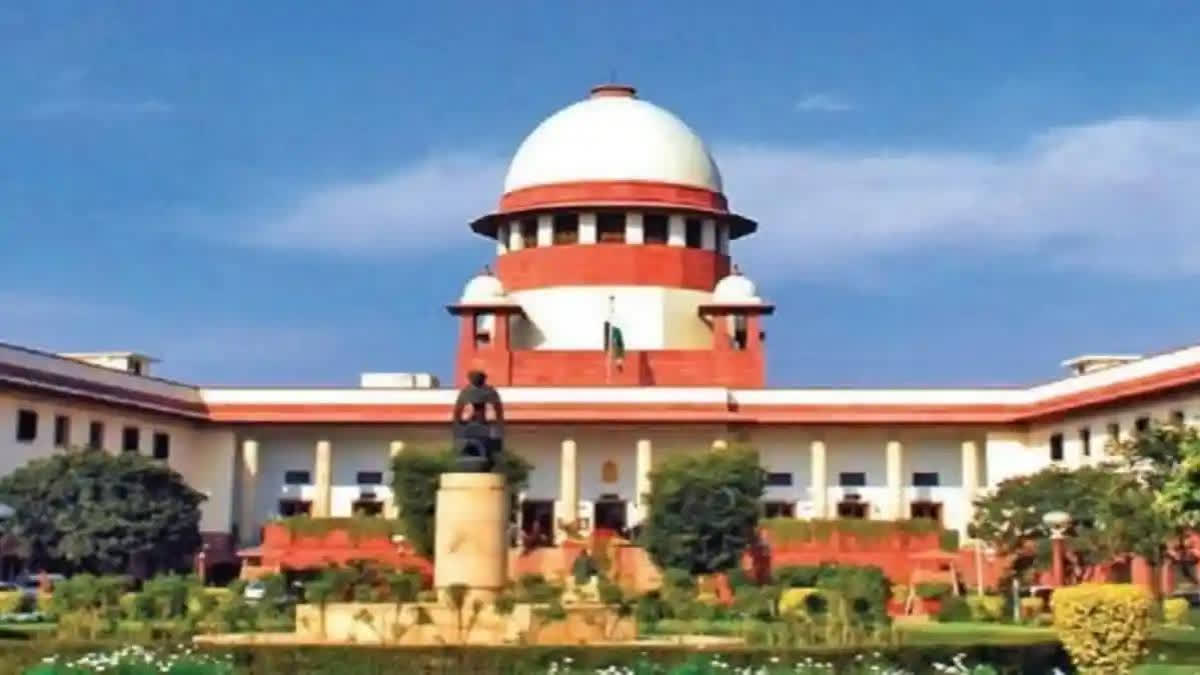New Delhi: The Supreme Court on Monday issued notice on a plea against a Madras High Court order, which said that mere downloading and watching child pornography is not an offence under the POCSO Act and the Information Technology law. A bench comprising Chief Justice DY Chandrachud and justices JB Pardiwala and Manoj Misra took note of the submissions of senior advocate HS Phoolka, along with advocate Saksham Maheshwari, representing the petitioner organisations Justice Right for Children Alliance and New Delhi-based ‘Bachpan Bachao Andolan’, that the High Court judgement was contrary to the laws.
The CJI said that the High Court judgment “is atrocious” and added that how can this order be passed? There is a clear provision for this under the Act. The apex court issued notice to S Harish, a resident of Chennai, and the two police officers of Tamil Nadu. The bench said the notice is returnable in three weeks.
The plea challenged the High Court order dated January 11, 2024, which quashed the FIR and criminal proceedings related to the downloading of child pornography and held that downloading and possessing child pornography does not amount to any offence. “This will encourage child pornography and would act against the well-being of children. The impression is given to the general public that downloading and possessing child pornography is not an offence and it would increase the demand for child pornography and encourage people to involve innocent children in pornography”, said the plea before the apex court.
The petitioner said it is relevant to mention that the present case involves the downloading and viewing of pornographic material relating to children, which falls within the ambit of an offence under Section 15 of the POCSO Act, 2012. “The distinction is paramount, as the nature of the content and the involvement of minors in the material make it subject to the provisions of the POCSO Act, rendering it a distinct offence from the one considered in the Kerala High Court's judgment”, said the plea before the apex court.
The High Court had said that Generation Z children are grappling with this serious problem and instead of damning and punishing them, society must be mature enough to properly advise and educate them and try to counsel them to get rid of that addiction. The High Court had quashed the criminal case against Harish under the Protection of Children from Sexual Offences (POCSO) Act, 2012 and the Information Technology Act, 2000.
“The education must start from the school level since exposure to adult material starts at that stage itself. This court advised the petitioner, who was present in person, to attend counselling, if he is still afflicted with this addiction. This court hopes that the petitioner will listen to the advice and get rid of the addiction for a happy and healthy future”, the High Court had said.
The High Court had said that in order to constitute an offence under Section 67-B of the Information Technology Act, 2000, the accused person must have published, transmitted, or created material depicting children in a sexually explicit act or conduct. “A careful reading of this provision does not make watching child pornography, per se, an offence under Section 67-B of Information Technology Act, 2000,” the High Court had said.
Read more: SC Stays Conviction Of Tamil Nadu Minister K Ponmudi In Disproportionate Assets Case



